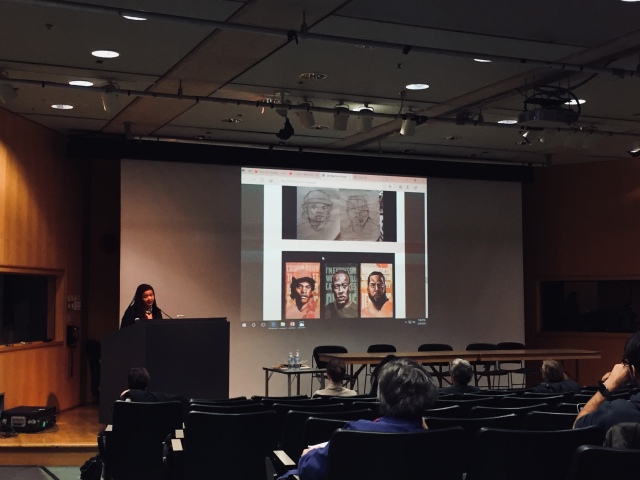“Dream Big” says Dr. RM Kennedy at the ARTivism Lab; A phrase I would hear throughout my education to figure out what I wanted to do with my life; to choose my plan and define my aspirations.
From where are my dreams formed? This is a question the speakers at the ARTivism lab posed in my mind. Who or what are my dreams and aspirations supporting? Where do I go to pursue these dreams? Post-Secondary Education is glorified as the epitome of academic success and a gateway to. “knowledge is power” is a recurring mantra. But what is knowledge and who holds the key to its gate? University knowledge can be a powerful resource; however, I appreciate the remark Sandra Jeppesen – an associate professor at Lakehead University – on the value of people outside the field of traditional academia.
The education system pushes its students to “innovators” and entrepreneurs to contribute to the be economic drivers in society. Where is the critical thought that makes me question the systems in which I take part in? What kinds of social issues are we taught in class? What is the contributions of such academic work to better not only the privileged metropolitan citizens? Susanne Nyaga – a Social Work student at Ryerson University and on-campus activist for black rights – speaks of needing a space where people can have “deep” and meaningful conversations on social issues. Only when active discourse is mobilized and normalized can attitudes towards social issues change. The university can be a place for this discourse.
Preston’s ideas on multi-disciplinary courses and the general trend of disengagement in their social work class speaks to the idea that social justice is not at the forefront of everyone’s minds nor is it a motive for pursuing their careers. What if it were a suggestion to implementing social work into all aspects of education; making people – specifically in STEM programs to think about their work and how their contribution forms the society that we live in. Each discipline to use their unique positions in society to spread social change like a wanted infection.

I am not suggesting to completely derail the idea of a free-market system and one’s individual right to earn a living for themselves. For the university cannot exist without it’s students (‘money). But can there be a way to be innovative and also contribute to the betterment of society? I feel fortunate as a Creative Industries student at Ryerson who is taught how to integrate arts and culture into a capitalist setting and trying to find the right balance on how to ‘win’ inside the system. In a role of privilege as a student, I identify with Hudson’s notion of “giving back” when one is in a role of privilege.
Sources Referenced
Preston, Susan, and Aslett, Jordan. “Resisting Neoliberalism from within the Academy: Subversion through an Activist Pedagogy.” Social Work Education, vol. 33, no. 4, 2014, pp. 502-518.